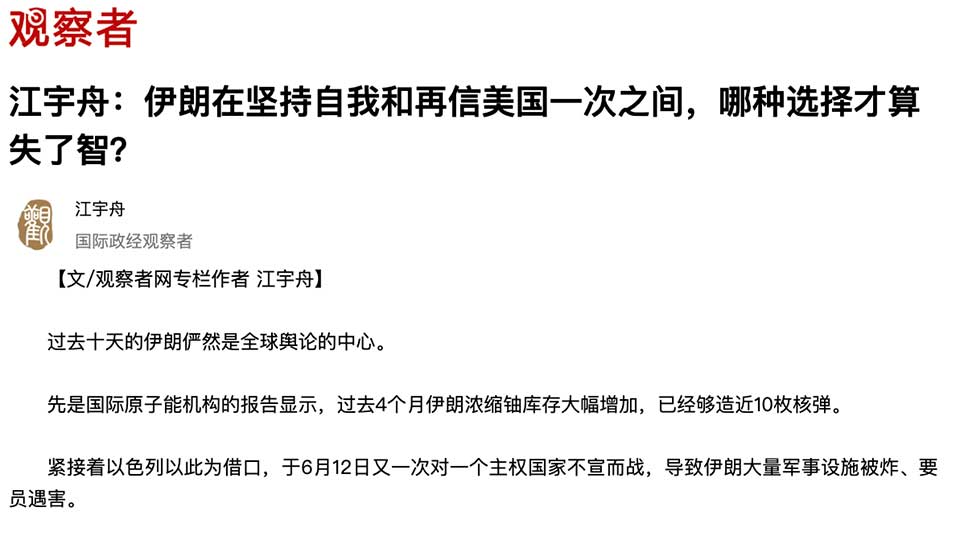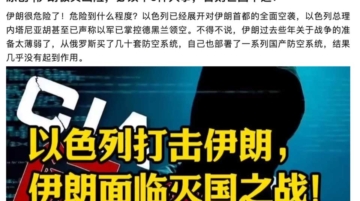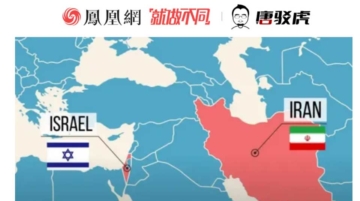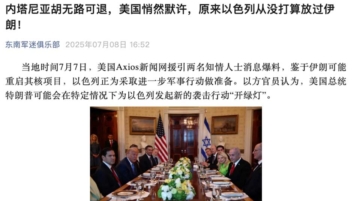
After President Trump announced that American forces had destroyed Iran’s nuclear facilities, ending the Israel-Iran conflict, Chinese media shifted focus from how the war would unfold to analyzing what actually happened. A commentary from news platform Guancha.cn titled “For Iran, which is the greater mistake—staying defiant or trusting the U.S. again?” looks closely at Trump’s role, arguing that while Israel was aggressive and Iran indecisive, it was Trump who played the most consistent—but also the most contradictory—role throughout the crisis.
The piece points out that Trump took a hardline stance against Iran since his first term. He wanted to disarm the country, break its economy, and even see regime change. At the same time, he also followed a principle from the MAGA movement: the U.S. shouldn’t waste American lives or money on foreign wars. Trump repeatedly made clear that he had no interest in launching a full war against Iran. His preferred approach was to increase pressure—through sanctions, abandoning the nuclear deal, and targeted military actions like the assassination of Iranian General Qasem Soleimani—while staying out of direct military conflict.
This strategy continued during his second campaign and into his current term. Trump insisted on terms Iran could never accept, such as “zero uranium enrichment,” which blocked any progress in nuclear talks. He also encouraged stronger military and diplomatic support for Israel, which increased Israel’s willingness to take military risks.
The article also describes how Trump’s public messages during the crisis were confusing and often contradictory. It argues that while some people believe these shifts were part of a coordinated plan with Israel, aimed at confusing Iran and increasing pressure, there’s actually a deeper issue: Trump doesn’t want the U.S. to be drawn into Israel’s war with Iran, but also doesn’t want to stop Israel from escalating. This hesitation has left the U.S. stuck—neither fully supporting Israel nor able to pull back. As a result, the U.S. ends up reacting to events rather than controlling them.
The article outlines three main problems this inconsistency strategy creates.
- From a military standpoint, Trump wants to be able to strike Iran but avoid full war. That’s not realistic. If Iran is attacked, it will hit back—mainly at Israel. This puts pressure on the U.S. to get more involved.
- Trump’s demands in nuclear talks are too rigid. By insisting on zero enrichment, he’s not just asking Iran to give up weapons but also denying it the right to use nuclear energy. That’s a non-starter for Iran, especially when Trump’s past actions—like breaking the nuclear deal—have already hurt his credibility.
- Trump cannot control Israel’s actions. The Israeli government, especially under Netanyahu, has strong reasons to keep the conflict going. It wants the U.S. fully involved, and it may continue to escalate even after Iran’s nuclear sites are destroyed.
In the end, the article argues that Trump’s approach has weakened the U.S. position. His strategy of pressure without commitment, and support without control, has created confusion and reduced America’s influence. Iran has become harder to deal with, Israel more unpredictable, and any hope for a real diplomatic solution more distant. The U.S. is now in a worse position than before the war began—not because it lacked power, but because it used that power in a confused and inconsistent way.






